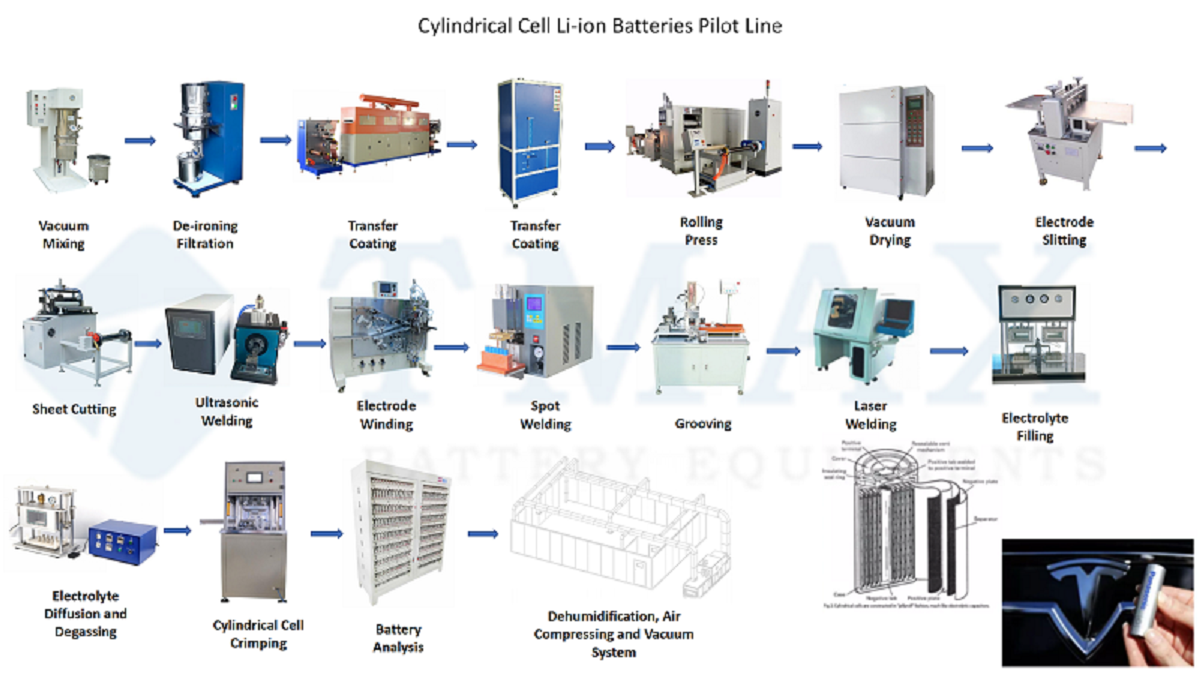A Lithium Cell Pilot Plant is a facility specifically designed for research, development, and small-scale production of lithium-ion batteries or other types of lithium-based energy storage cells. These pilot plants are crucial in the process of bringing new battery technologies from the laboratory to commercial viability. Here are some key aspects of a lithium Cell fabrication machin:
Research and Development: Pilot plants provide a platform for researchers and engineers to test and refine new battery technologies before moving to full-scale production. This includes experimenting with different materials, cell designs, and manufacturing processes.
Scale-Up Studies: The pilot plant phase is essential for understanding how a specific battery technology or manufacturing process can be scaled up to meet commercial demands. Engineers use this stage to identify and address potential challenges associated with larger-scale production.
Process Optimization: Engineers work on optimizing various aspects of the production process, such as electrode preparation, cell assembly, electrolyte formulation, and quality control. This phase ensures that the manufacturing process is efficient, cost-effective, and capable of producing reliable lithium cells.
Material Testing: Pilot plants allow for the testing and evaluation of different materials for electrodes, electrolytes, and other components. This helps in determining the most suitable and cost-effective materials for large-scale production.
Quality Control Implementation: Establishing robust quality control measures is critical for ensuring the consistency and reliability of lithium cells. Pilot plants help in developing and implementing quality control protocols that can be scaled up for mass production.
Prototype Production: Pilot plants are often used for the initial production of small batches of prototypes. These prototypes are then tested extensively to validate their performance and identify any potential issues before moving to larger-scale production.
Data Collection: Pilot plants generate valuable data on the performance, efficiency, and reliability of lithium cells. This data is crucial for making informed decisions during the scale-up process and for meeting regulatory requirements.
Training Ground: Operating a pilot plant requires skilled personnel. The pilot plant serves as a training ground for engineers, technicians, and other staff involved in battery manufacturing.
In summary, a lithium Cell lab machine plays a vital role in the development and commercialization of advanced battery technologies, serving as a bridge between laboratory research and mass production.

 en
en fr
fr de
de ru
ru es
es pt
pt ko
ko tr
tr pl
pl th
th







 IPv6 network supported
IPv6 network supported